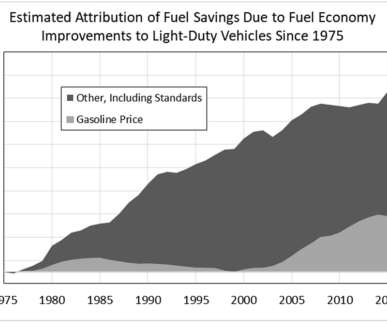Study estimates fuel economy improvements to US light-duty vehicles from 1975–2018 saved 2T gallons of fuel, 17B tons of CO2
Green Car Congress
MAY 3, 2020
gasoline demand would have put upward pressure on world oil prices. They added indirect rebound effects via income and world oil prices to the calculations because, in principle these could have non-trivial impacts on fuel savings. First, had fuel economy not improved, the higher level of U.S. Greene, Charles B.
















Let's personalize your content